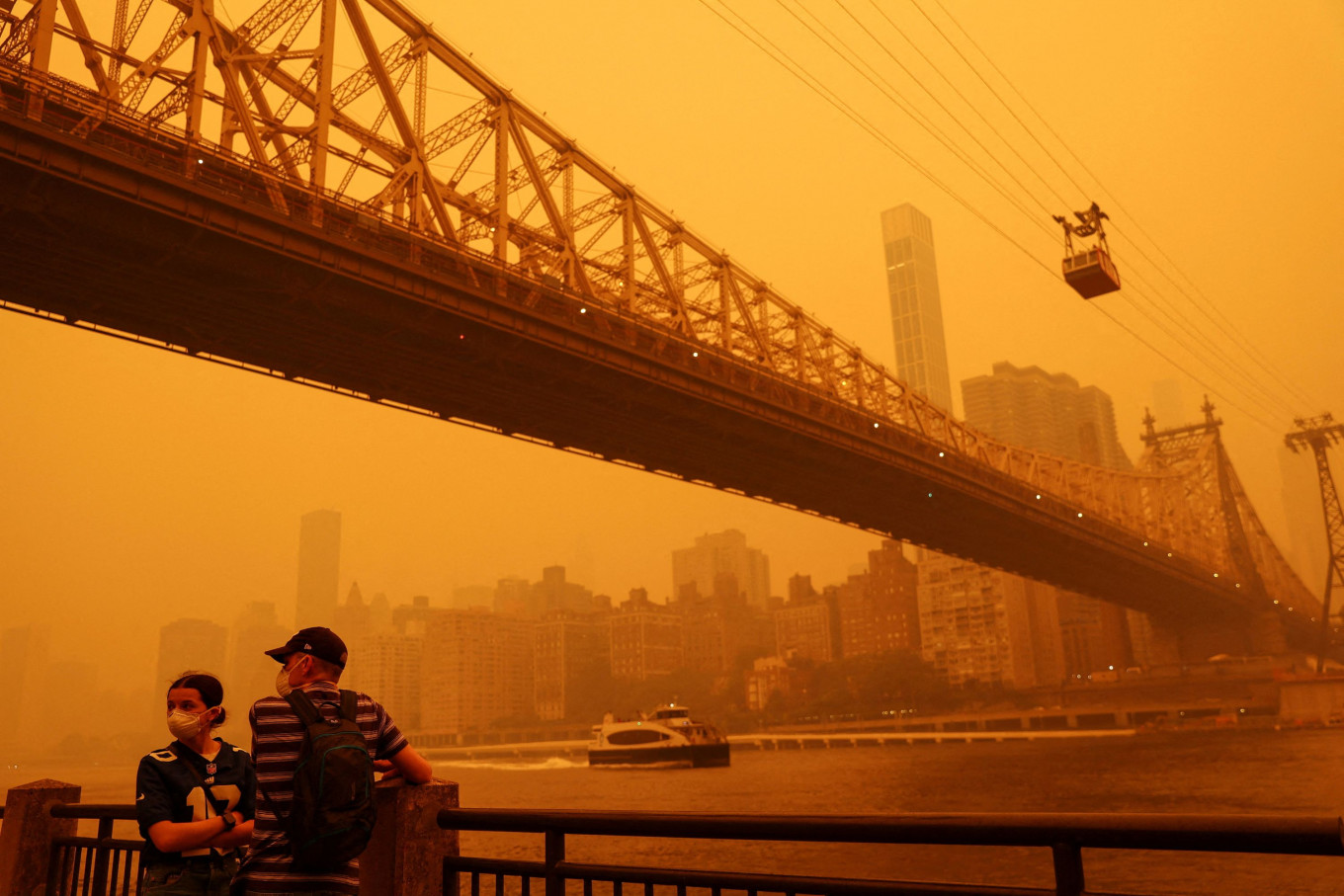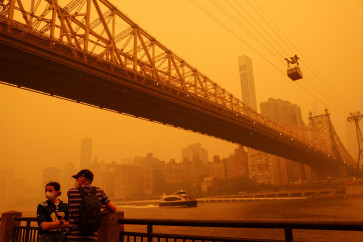Popular Reads
Top Results
Can't find what you're looking for?
View all search resultsPopular Reads
Top Results
Can't find what you're looking for?
View all search resultsCanada’s wildfires a reminder of the need for common climate action
The wildfires in Canada are a reminder that Indonesia and Malaysia may soon enter an El-Nino cycle, which may cause forest fires and transboundary haze.
Change text size
Gift Premium Articles
to Anyone
M
ass media headlined more than 500 blazes in Canada, over a third of them in Quebec, burning last Thursday with images of the smoke billowing from the fires and obscuring the New York skyline and the Washington Monument in the United States for several days last week. Millions of people suffered from the choking haze and heavily smoky air, closing schools and playgrounds and causing what was considered the worst toxic air pollution in recent recorded US history.
This cataclysmic crisis has given the world a new picture of the perils of wildfires. While masses of unhealthy air from Canadian wildfires may have been an unnerving novelty for millions of people on the US east coast, it was a reminder of conditions routinely troubling the country's west, and a wake-up call about the future, scientists say.
Yet most international environmental NGOs, which usually cry out when such haze occurs in tropical countries like Indonesia, do not seem to be making a noise. Neither did they immediately resort to finger-pointing blame as they have done to Indonesia and other tropical countries.
Several climate scientists pointed out that the wildfires were a kind of astounding event but likely to become more common amid global warming. Such conditions are nothing new, indeed, increasingly frequent, on the US west coast. Since 2017, California has seen eight of its 10 largest wildfires and six of the most destructive. So, what is the big deal about the smoke out east?
Australia has also seen similar catastrophic wildfires in the last few years, while Indonesia has consistently controlled its forest fires to minimum levels. The new administration of Brazil is also showing a similar commitment to fire control.
“The west has always burned, as has Canada, but what's important now is that we have been with these massive amounts of smoke in a very populated region, so many, many people are getting affected," Loretta Mickley, the co-leader of Harvard University's Atmospheric Chemistry Modeling Group, was quoted in The Harvard Gazette as lamenting.
The latest waves of wildfires again speak volumes about the need for common actions to prevent land and forest fires. Blaming and vilification of particular farm commodities, such as palm oil in the tropical region of the Global South for fires and haze is a big blunder.



















